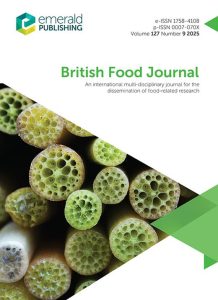Eco-innovation drivers in the wine industry: insights from Hungarian wineries
The aim of this study is to explore the drivers of eco-innovation in the Hungarian wine industry, focusing on the role of dynamic capabilities, networking and managerial commitment in the adoption of sustainable practices in this resource-intensive sector.
A structured survey was conducted with 234 Hungarian wineries, and the data were analysed using principal component analysis and a semi-parametric binary model. The study examined how firm-specific factors, such as dynamic capabilities, networking, managerial attitudes and firm characteristics, influence the adoption of eco-innovation.
The findings reveal that absorptive capacity is the most significant factor in driving eco-innovation, while dynamic capabilities mainly impact advanced innovations like the application of digital technologies. Networking is beneficial for incremental innovations, such as resource recycling, but may impede more complex innovations like emission reduction. Managerial commitment, particularly in family-owned wineries, plays a crucial role in the implementation of long-term sustainability initiatives. Firm size and ownership structure also shape the extent of eco-innovation adoption.
Future research should further examine the long-term effects of such interventions and assess the role of regional governance structures in fostering or inhibiting eco-innovation ecosystems. Comparative studies across Central and Eastern European wine regions could provide broader insights into scalable sustainability practices and the institutional conditions necessary for their success. Moreover, future investigations could explore the temporal evolution of eco-innovation capabilities in response to shifting policy landscapes and climate pressures. Longitudinal studies would help determine how wineries build and sustain dynamic capabilities over time, particularly in response to external shocks such as regulatory changes or market disruptions. Finally, further research could examine the gender dimension of sustainability leadership in wineries, assessing whether and how inclusive leadership translates into distinct innovation outcomes and strategic orientations.
Enhancing absorptive capacity: Winery managers should prioritize continuous learning and build stronger ties with knowledge hubs such as universities, research centres and industry associations. Overcoming financial barriers: Financial incentives are essential to bridge the investment gap for smaller wineries. Investing in training and human capital: Many wineries lack the internal expertise needed to adopt and manage complex innovations. Strengthening institutional support: Policymakers should work toward improving the clarity and accessibility of sustainability-related regulations and support schemes. Fostering collaborative innovation models: Encouraging cooperative models, particularly among small wineries, can help pool resources and reduce the risks associated with costly innovations. Supporting women in sustainability leadership.
This study provides actionable, context-specific recommendations for both policymakers and managers. For policymakers, targeted financial support, performance-based incentives and strengthened eco-certification programs are essential to fostering eco-innovation. For winery managers, building dynamic capabilities, leveraging consumer demand, collaborating with stakeholders and embracing digital transformation are key strategies for promoting sustainability and competitiveness. By implementing these recommendations, the Hungarian wine sector can achieve greater environmental sustainability while maintaining its position in the global market. As the demand for eco-friendly products continues to grow, these targeted strategies will help ensure the sector’s resilience and long-term success in the face of evolving environmental and economic challenges.
This research provides new insights into eco-innovation in the Hungarian wine industry, an emerging market where resource constraints and regulatory frameworks differ from those in established markets. The study extends the literature by detailing how dynamic capabilities, networking and managerial commitment interact to influence eco-innovation, offering valuable implications for small and medium-sized enterprises and policymakers in similar sectors.
Eco-innovation, Wine industry, Dynamic capabilities, Managerial commitment, Networking capabilities


